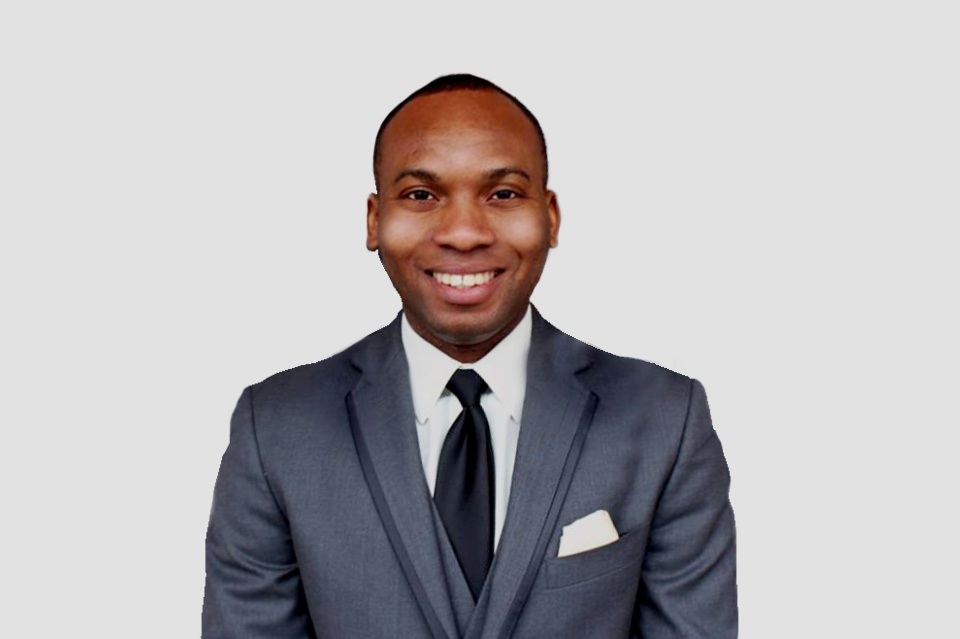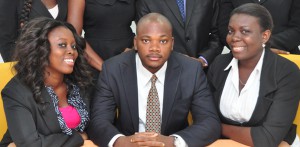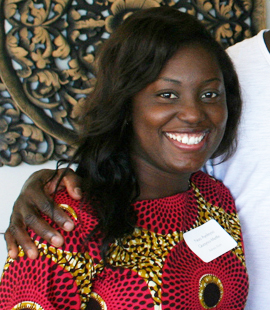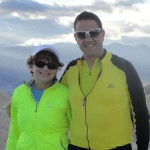 At Ashesi, my whole life changed. I met students from different parts of the world. My peers were smarter and challenged every academic, social, and political boundary in their societies daily. My lecturers empowered me to discover myself and also to strive for academic excellence, integrity, and to serve my community, irrespective of where I find myself.
At Ashesi, my whole life changed. I met students from different parts of the world. My peers were smarter and challenged every academic, social, and political boundary in their societies daily. My lecturers empowered me to discover myself and also to strive for academic excellence, integrity, and to serve my community, irrespective of where I find myself.
I barely knew myself and what I really wanted to do with my life when I graduated from high school. However, I knew I was smart, and thought differently than my schoolmates. I realized after talking to some friends in public universities that, the existing universities in Ghana were not made to inspire people like me. I needed mentoring to harness all my potentials so I kept looking for a closer match.
So when my mum gave me the opportunity to choose a college to apply to in 2006, I stubbornly went for the harder option. I chose Ashesi University, knowing that failure to get admission into this ‘new big thing’ would mark the end of my college dreams that year. My parents worked tirelessly, with combined earnings of less than $200 monthly yet they insisted my nine siblings and I had the best education possible. Therefore the decision to spend the hard-earned GHc 45 on just Ashesi admission forms was unthinkable to many in my family because my parents had no chance of ever paying my tuition fees.
However, the idea of sitting in smaller classes, having exclusive access to lecturers during office hours and the prospect of benefiting from Ashesi’s financial aids available to people like me, was enough for me to risk everything. Yes, I did risk everything because, for the first time, I felt I would be getting something close to what my peers in seasoned colleges in the US and UK enjoy daily right here in Ghana.
After a grueling four-month application process, I finally got into Ashesi and received generous financial aid. My first semester at Ashesi was the biggest four months of my academic life. I used the internet for the first time in my life. Reading about past and present influencers of the world made me re-examine my beliefs, values, and aspirations in life.
At Ashesi, my whole life changed. I met students from different parts of the world. My peers were smarter and challenged every academic, social, and political boundary in their societies daily. My lecturers empowered me to discover myself and also to strive for academic excellence, integrity, and to serve my community, irrespective of where I find myself. I faced every new day thinking of solutions to problems instead of the usual moaning. I yearned for more knowledge hoping to learn something new every day. I learned to only consider my day successful if l learned something that has a positive impact on my community.
My proudest moment in Ashesi was the opportunity to be a member of the first students’ group (Class 2011) to formally consent to the university’s Honor Code system. I wanted to trust my mates and for them to trust me too. We believed it could only be achieved by holding each other responsible to the honor code system.
Ashesi made me and gave me so many wonderful gifts: a cherished degree, wonderful lifelong friends, and a wonderful woman Amy who I met in my senior year, who is now my wife. I am now one of the few in my family to graduate from college and I remain grateful and proud to be an alum of an institution that personifies a new beginning in African’s present and future development.
Philip Coffie Dzisenu (Class 2011)

 Written by Charles: “I am a GE project development associate covering Sub-Saharan Africa, where I helped build the “Ghana 1000” project. In other words, I am the boots on the ground with a seat at the drawing table.
Written by Charles: “I am a GE project development associate covering Sub-Saharan Africa, where I helped build the “Ghana 1000” project. In other words, I am the boots on the ground with a seat at the drawing table.
 Ashesi student develops “Learn Math Yourself”
Ashesi student develops “Learn Math Yourself” Naa Ayeleysa took full advantage of what Ashesi, and the world, offers to students. From winning career fair competitions, to earning internship opportunities at Goldman Sachs in London, to presentations at global conferences in Qatar, Naa went after every opportunity with grit, passion, and an ambitious goal in mind, all while maintaining a strong classroom presence. Today, Naa works as the Executive Assistant to the CEO & Chairman of Weston Group Ltd, Ghana, Liberia, where she helps manage the affairs of the company’s subsidiaries. Naa is also a leader on the Weston Group Foundation Initiative which will launch its first two projects in August/September 2014. The first initiative is a library project, which will be heavily focused on literacy rates for children up to 16 years old. The second project focuses on healthcare, and provides first aid tool kits for children ages 0-16 admitted at the Korle-bu Emergency Ward in Accra.
Naa Ayeleysa took full advantage of what Ashesi, and the world, offers to students. From winning career fair competitions, to earning internship opportunities at Goldman Sachs in London, to presentations at global conferences in Qatar, Naa went after every opportunity with grit, passion, and an ambitious goal in mind, all while maintaining a strong classroom presence. Today, Naa works as the Executive Assistant to the CEO & Chairman of Weston Group Ltd, Ghana, Liberia, where she helps manage the affairs of the company’s subsidiaries. Naa is also a leader on the Weston Group Foundation Initiative which will launch its first two projects in August/September 2014. The first initiative is a library project, which will be heavily focused on literacy rates for children up to 16 years old. The second project focuses on healthcare, and provides first aid tool kits for children ages 0-16 admitted at the Korle-bu Emergency Ward in Accra. Philanthropy: a family affair for Ruth and Todd Warren
Philanthropy: a family affair for Ruth and Todd Warren
